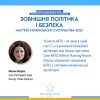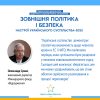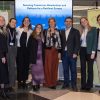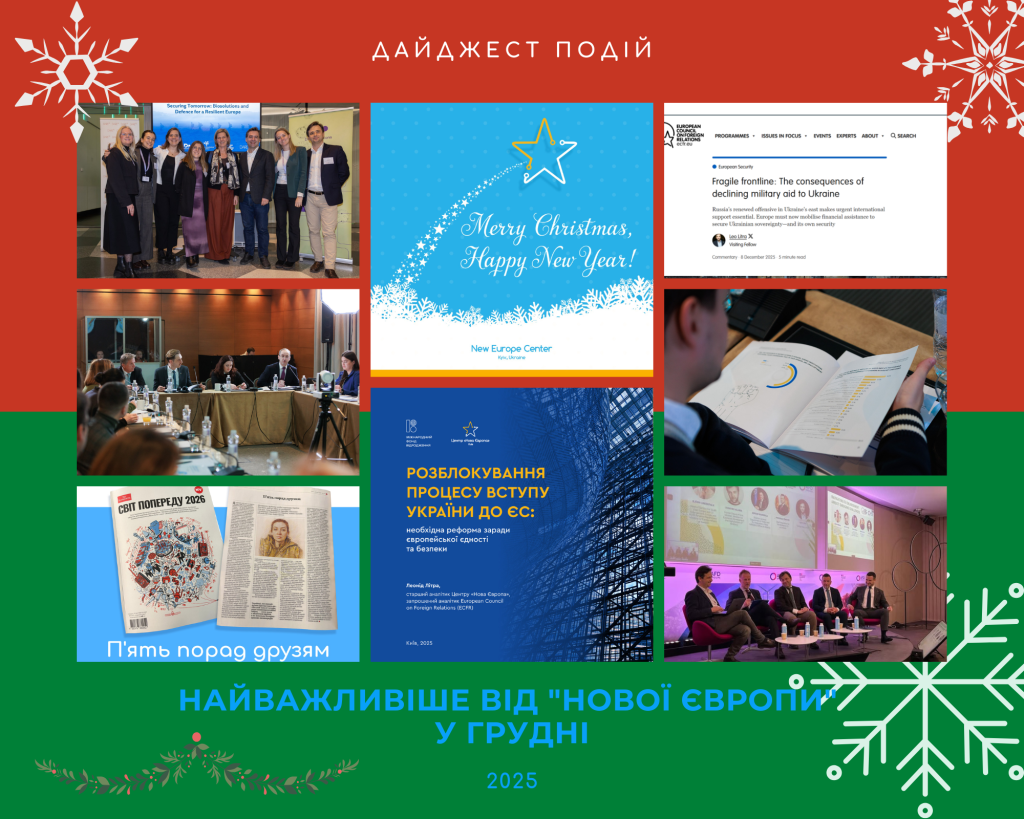The second session “Advocating Sectoral Benefits: What Advantages Does the New Enlargement Bring for the EU?” of the 4th EU Accession Exchange Forum focused on why the next enlargement is a strategic opportunity for the European Union itself. Experts highlighted that integrating Ukraine is not an act of charity, but a way to boost the EU’s competitiveness, security, and green transition. Speakers emphasized that enlargement should be communicated as a win-win process that makes Europe stronger economically, environmentally, and geopolitically — while countering populism and disinformation.
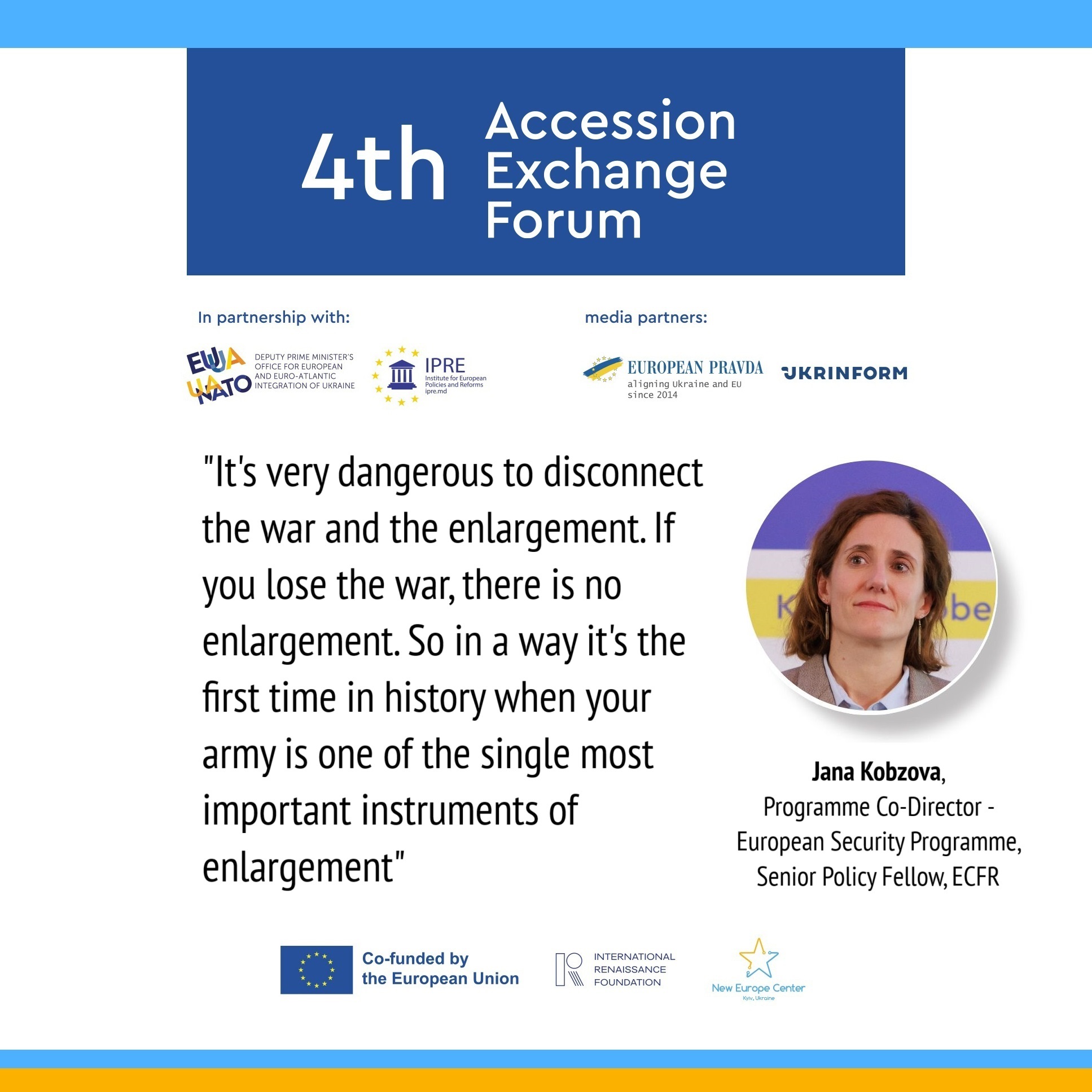
Oleksandra Betliy, Leading Research Fellow, Institute for Economic Research and Policy Consulting, Ukraine:
– Enlargement of the European Union is not a charity. It is about competitiveness, resilience, and better chances for development as well as security;
– With a strong Ukraine, the European Union will be more competitive on the global market. Ukraine has strong agriculture, strong industries as well as smart people and adaptive business;
– European citizens, and farmers especially, are afraid of losing benefits under the Common Agricultural Policy. But the EU has been planning to reform it for more than ten years because it’s expensive and inefficient. Ukraine actually pushes the EU to reform, and this is really needed;
– Ukraine is still a country of 30 million people – a large market of skilled and educated professionals. With better vocational education and training, we will have a strong labor market that will attract European companies;
– If we have strong security guarantees, investments will come, recovery will accelerate, and Ukraine will become a market open to European architects, engineers, and creative professionals.

Jana Kobzova, Programme Co-Director – European Security Programme, Senior Policy Fellow, European Council on Foreign Relation (ECFR):
– It’s very dangerous to disconnect the war and the enlargement. If you lose the war, there is no enlargement. This is the first time in history when your army is one of the single most important instruments of enlargement;
– The enlargement process is quite unique when it comes to Ukraine. We’ve never had that situation before, and that requires a lot of adjustment on the EU side. The whole talk about creative solutions is partly an acknowledgment of this uniqueness;
– The European Union is having a belated reckoning of what it means to accept Ukraine in practice. This means doing it as us, not with the United States, sometimes despite the United States, and in a very difficult geopolitical environment;
– In many European publics, Ukraine is seen as a country of upheavals, which inspired a lot of solidarity. But it’s very different to discuss whether we want this country in the EU. Opponents of enlargement will abuse it against Ukraine;
– If you want to sell enlargement to broader publics, rule of law is essential. Businesses need the guarantee that court decisions in Ukraine will be as valid as in the Netherlands or Spain.
– Populism thrives on fear. You don’t dismiss it – you explain what you will do if it happens. You need mitigation strategies and real dialogue.
– We need to have discussions on financial and other sides of the enlargement sooner or later. Because if we don’t have these discussions, it will be used against Ukraine. Talking to affected communities and engaging politically, even when the claims are false, is essential. Otherwise, we cede the ground to populists.
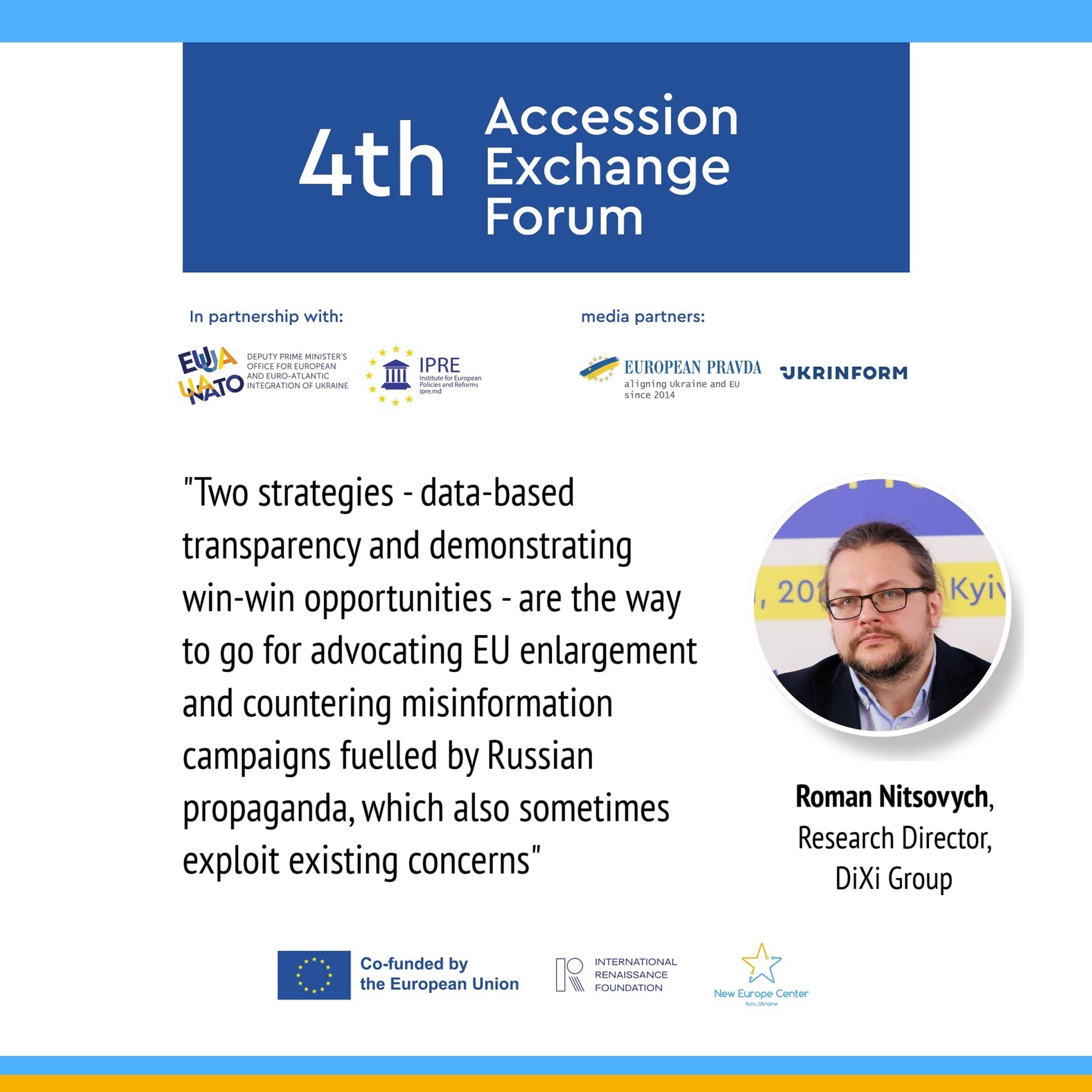
Roman Nitsovych, Research Director, DiXi Group, Ukraine:
– EU citizens do not perceive the EU as a space of prosperity and security any longer, since it is constantly challenged. Beyond migration, corruption, or organized crime, people are concerned about vulnerability to security challenges, negative impact on employment, and increased economic disparities;
– Despite these concerns, the key benefits are actually mirrored in the way enlargement would bring larger markets, more opportunities and labor for EU businesses, more solidarity between countries, and stronger EU influence in the world;
– Eurosceptic and nationalist movements are shaping the narrative on enlargement, often exploiting anti-Ukrainian sentiment;
– Two strategies – data-based transparency and demonstrating win-win opportunities – are the way to go for advocating EU enlargement and countering misinformation campaigns fuelled by Russian propaganda, which also sometimes exploit existing concerns;
– Ukraine’s economic ties with the EU are already mutually beneficial, particularly in the energy sector. In 2024, electricity imports from the EU to Ukraine amounted to €670 million. These are revenues for EU producers. The same applies to fuel imports after Russia destroyed our refineries. In the future, Ukraine will be a great market for renewables, gas-fired generation, and energy efficiency projects;
– Ukraine has a role as a driver of Europe’s strategic transformation, pushing the EU beyond its “comfort zone” on defence, energy, and geopolitical responsibility.
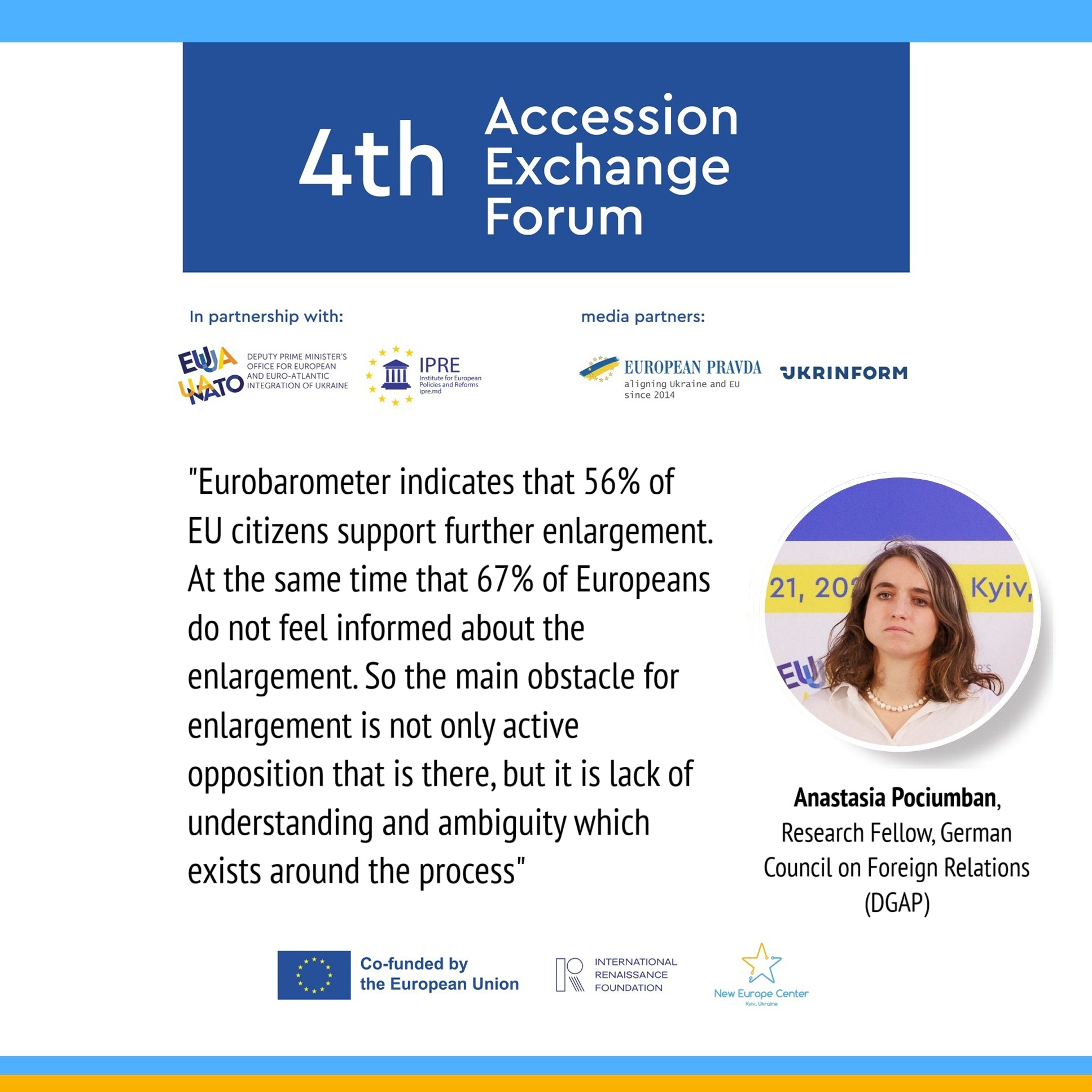
Anastasia Pociumban, Research Fellow, German Council on Foreign Relations (DGAP), Germany:
– 67% of Europeans do not feel informed about the enlargement. So the main obstacle for enlargement is not only active opposition that is there, but it is lack of understanding and ambiguity which exists around the process;
– People fear migration, corruption in candidate countries and financial costs. While these are not irrational concerns, they are largely unaddressed as well, and they are being further emphasized and instrumentalized in the national elections;
– We need to shift the narrative from normative to strategic. We long presented this enlargement as a moral obligation, a reward for democratic commitment, and for Ukraine specifically, for defending our democracy and fighting Russia’s invasion, which remains valid. But I also think we need to appeal more to practical arguments to European citizens.
– We have to shape the narratives, before Russia shapes them. I don’t think debunking disinformation is enough nowadays. I think we have to come with a positive agenda, and also present what the candidate countries could offer: security, energy resilience, digitalization and economic competitiveness;
– Enlargement as a geopolitical imperative. It’s not a gesture. It’s a matter of EU credibility as a geopolitical and global actor. The cost of inaction – instability, hybrid interference, dependency – is higher than the cost of enlargement;
– Enlargement as reform-driven, not charity-based. It’s not about taking in weak or corrupt states. EU conditionality has produced rule of law and anti-corruption reforms at a high pace. We should speak about how quickly candidate countries could adopt reforms compared to before;
– We have to engage especially with those who push for reform in modern, agriculture sectors and create links now between Ukrainian and EU industries where there is willingness to cooperate.
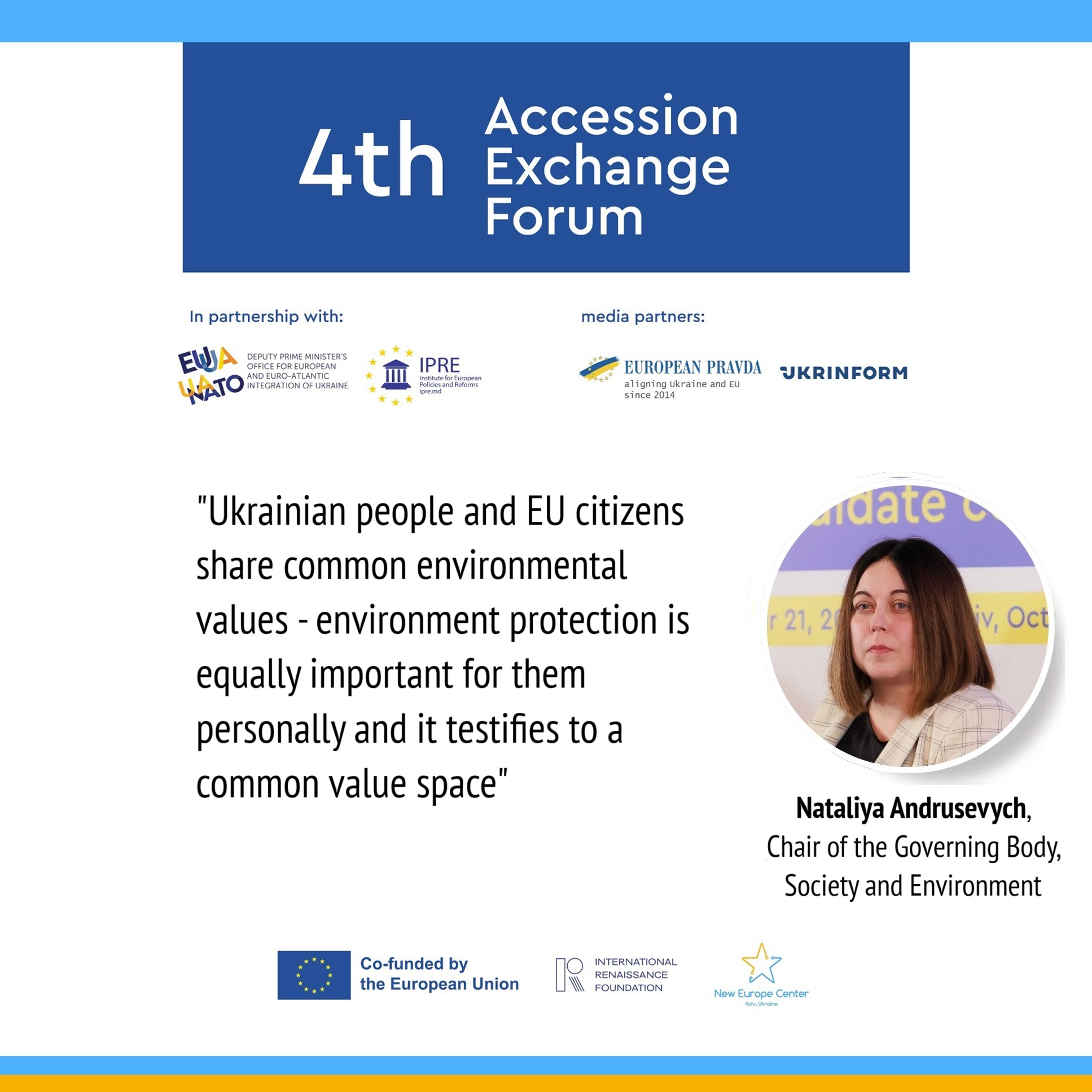
Nataliya Andrusevych, Chair of the Governing Body, Society and Environment, Ukraine:
– The climate change chapter in the negotiation process is very big and difficult to implement, so we have a lot of homework to do here.
– There is a gap in information among European counterpart about environmental issues in Ukraine – how we make progress in adopting and implementing EU-aligned legislation;
– Ukraine already shares many EU strategic goals in areas like climate change and sustainable transport, and demonstrates some achievements in those fields. Good example that we share common goals is that the European Green Deal’s goal of climate neutrality by 2050 is also Ukraine’s goal;
– Ukraine’s integration will strengthen the EU’s green transition, providing access to strategic resources (lithium, hydrogen, biodiversity, soils, forests), a qualified workforce, and new markets for green technologies and investments. Ukraine has already reduced greenhouse gas emissions by 33% compared to 1990, exceeding the EU’s interim 2030 target;
– There is a need to proactively communicate progress and challenges, referencing the Dutch referendum on the EU–Ukraine Association Agreement, where misinformation about animal welfare contributed to public scepticism;
– A country-to-country approach will deepen environmental cooperation and strengthen support for Ukraine’s accession. We can also find these benefits not only at the EU level, but bilaterally – Ukraine and Poland, Ukraine and Germany. It can be more efficient as well.
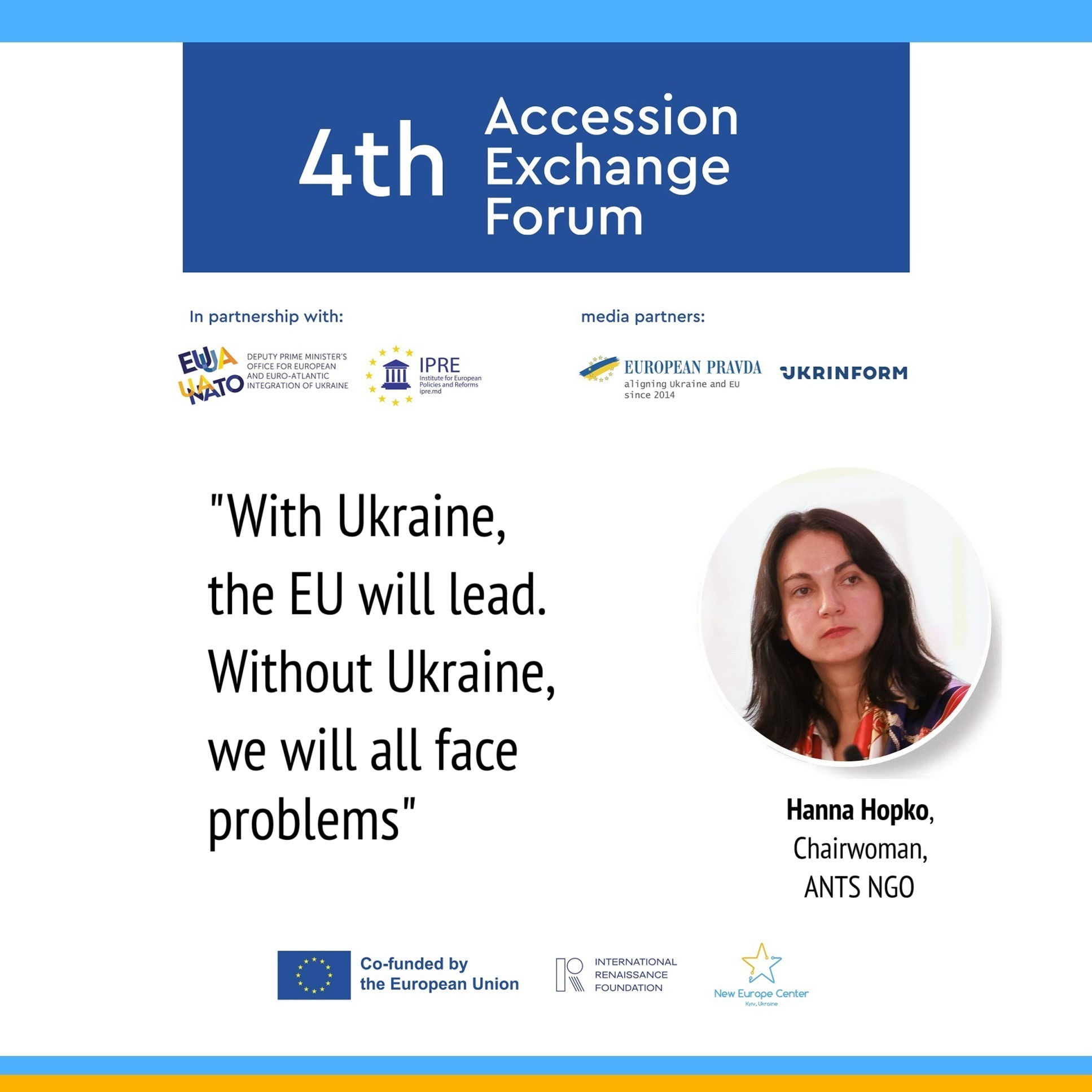
The session was kindly moderated by Hanna Hopko, Chairwoman, ANTS NGO, Ukraine:
– It’s very fair to say that the Ukrainian armed forces are de facto European armed forces;
– Ukraine is also a great example of energy resilience. The European Union and NATO could learn a lot from the Ukrainian experience on how to protect critical energy infrastructure;
– At a recent security event in Europe, one German representative told all the participants that the EU must defeat Russia. The quicker – the better. We also see some optimism and positive changes in the position on confiscation of Russian sovereign assets and Germany leading efforts in the Coalition of the Willing;
– Some of the parties with pro-Russian narratives, using Russian propaganda, try not to dominate, but to shape the public narratives, which is very risky, and parties like the Alternative for Germany are growing in their popularity;
– Even in the defenсe sector, where the EU aspires to become a true defenсe union, we still see competition between lobbyists of outdated weapons from World War II. It’s about money, not about Europe’s real competitiveness or capacity to confront Russia, China, or other threats;
– Real enlargement means more than just welcoming Ukraine into the family. It’s about making Europe a genuine geopolitical player;
– With Ukraine, the EU will lead. Without Ukraine, we will all face problems.
Watch the full recording of the Forum on New Europe Center`s YouTube channel below.
The EU Accession Exchange Forum is organized by the New Europe Center in partnership with the Office of the Deputy Prime Minister for European and Euro-Atlantic Integration of Ukraine, the International Renaissance Foundation, and the Institute for European Policies and Reforms (Republic of Moldova), with Ukrinform and European Pravda serving as media partners. The EU Accession Exchange Forum is taking place with EU support, within the EU-funded “Whole-of-Society Accession” project implemented by the International Renaissance Foundation.



